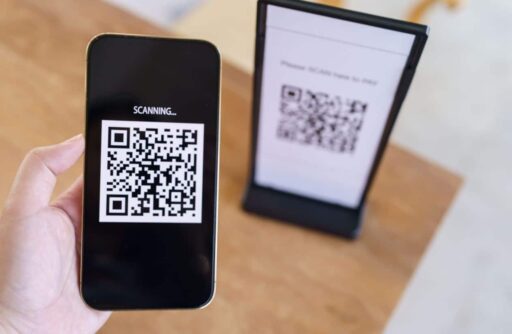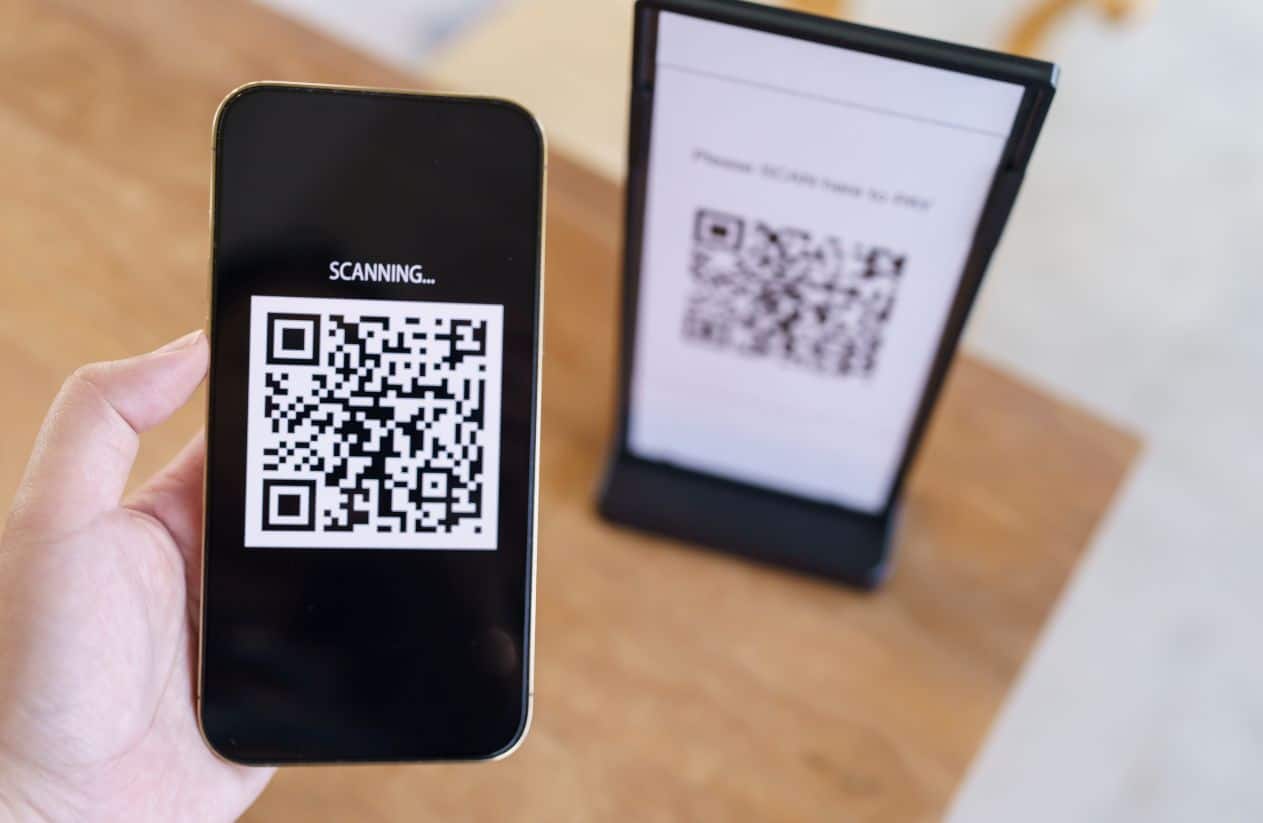Ever felt that familiar pre-event jitters, picturing endless queues, frantic searches for lost paper tickets, or the headache of manual check-ins? We’ve all been there. These traditional snags don’t just cause stress; they actively hold back your event from truly shining, dampening the attendee experience before it even begins.
But what if there was a smarter way? Enter digital ticketing solutions – the game-changer that promises to revolutionize not just how tickets are handled, but the entire event ecosystem.
In this article, we’re diving deep into how this shift can streamline your operations, skyrocket attendee engagement, unlock exciting new revenue streams, future-proof your events, and effortlessly navigate common challenges. Get ready to transform your next gathering!
The Operational Powerhouse: Streamlining Your Event Management

Forget the days of wrestling with spreadsheets, managing stacks of paper tickets, or deploying a small army just to handle entry. Digital ticketing solutions fundamentally reshape how events are run, transforming operational headaches into streamlined successes.
Effortless Sales & Seamless Entry
Imagine this: your attendees purchase tickets online in a flash, receiving them instantly on their phone or in their inbox. No more printing, no more mailing, no more physical distribution nightmares.
This isn’t just convenient for them; it drastically slashes your administrative burden and the manual labor traditionally associated with ticket sales and entry management.
Think about the savings on printing costs alone, not to mention the positive environmental impact of going paperless. It’s a win-win for your budget and the planet.
Real-Time Insights & Agile Decision-Making
One of the most powerful aspects of digital ticketing is the treasure trove of data it provides. These robust backend systems offer real-time tracking of sales, attendance, and even demographic information.
This isn’t just numbers; it’s intelligence. Need to adjust your marketing strategy because a certain ticket tier is selling faster than expected? Done. Worried about capacity limits? You’ll know exactly how many people are inside at any given moment. This immediate feedback loop empowers you to make agile, informed decisions on the fly, maximizing both attendance and revenue.
Plus, handling refunds or cancellations becomes a breeze, managed with a few clicks rather than a mountain of paperwork.
Fortified Security & Fraud Prevention
Security is paramount for any event, and digital ticketing elevates it significantly. Each digital ticket comes with a unique, encrypted QR code or barcode, making duplication virtually impossible.
This means no more worries about counterfeit tickets or unauthorized entry. Beyond just entry, many platforms facilitate secure ticket transfer and even legitimate resale within a controlled environment, further curbing the black market.
And if an attendee loses their digital ticket, resolving it is swift and secure – a quick reissue, ensuring only the legitimate holder gains access. It’s peace of mind for both you and your attendees.
Related Content: Also read our article about Top Ticket Platforms for Minimal Fees
Elevating Every Attendee’s Journey: From Anticipation to Afterglow

Beyond the operational wizardry, the true magic of modern event management lies in crafting an unforgettable experience for every single attendee.
This is where digital ticketing solutions for events truly shine, transforming a simple entry pass into a dynamic tool that enhances engagement at every stage of their journey.
Unmatched Convenience & Accessibility
Let’s face it, convenience is king in today’s fast-paced world. Digital tickets deliver this in spades. The sheer ease of purchasing and managing tickets directly from a mobile device means no more rummaging through bags for a printout or fretting over a lost paper stub.
This seamless digital access not only eliminates the risk of forgotten physical tickets but also dramatically speeds up entry lines, ensuring a smooth, stress-free start to the event.
Plus, many platforms offer interactive features like visual seat selection, allowing attendees to pick their perfect spot with a simple tap, adding a personalized touch right from the get-go.
Building Excitement: Pre-Event Engagement
The attendee experience doesn’t start at the venue door; it begins the moment they click “purchase.” Digital tickets become a powerful conduit for building anticipation. Imagine sending personalized event schedules, intriguing speaker bios, or exclusive teaser content directly to their mobile devices.
This isn’t just information; it’s a curated build-up that gets them excited and helps them plan their day. What’s more, integrated social media sharing options allow attendees to broadcast their excitement to their networks, organically amplifying your event’s reach and potentially sparking even more ticket sales through word-of-mouth buzz.
Immersive Experiences: During the Event
On event day, the digital ticket transforms into an interactive key. With a quick tap (NFC) or scan (QR code), attendees can breeze through check-ins, participate in live polls, enter contests, or unlock exclusive content.
This seamless interaction minimizes wait times and adds a futuristic, engaging layer to their experience.
The ability to collect real-time feedback through these digital touchpoints also provides invaluable insights, allowing you to gauge the crowd’s mood and preferences instantly, making dynamic adjustments to the event flow if needed. It’s about making attendees feel connected and heard, right there in the moment.
Sustaining the Connection: Post-Event Engagement
The relationship with your attendees shouldn’t end when the lights go down. Digital tickets provide a perfect channel for post-event engagement, helping you maintain that valuable connection until your next gathering.
Send personalized thank-you notes, gather crucial feedback through surveys, or offer exclusive discounts for future events. You can also use this channel to share access to event recordings, photo galleries, or content they might have missed, keeping the event alive in their memories.
This continued interaction fosters a strong sense of community and loyalty, turning one-time attendees into long-term fans.
Maximizing Your Bottom Line: Revenue Growth with Digital Ticketing

While operational efficiency and attendee satisfaction are huge wins, let’s talk about the bottom line. Digital ticketing solutions aren’t just about convenience; they’re powerful engines for revenue generation, offering sophisticated strategies to boost your event’s profitability.
Dynamic Pricing Models
Think like an airline or a hotel – their prices aren’t static, are they? That’s the power of dynamic pricing, and it’s a game-changer for events. This strategy allows you to adjust ticket prices in real-time based on demand, remaining inventory, and other market factors.
Early birds get a better deal, encouraging quick sales, while high demand closer to the event date allows you to capitalize on increased interest. It’s about finding that sweet spot to maximize revenue for every single ticket, ensuring you sell out at the best possible price.
Strategic Upselling & Cross-Selling Opportunities
Once someone has committed to your event, the opportunity to enhance their experience – and your revenue – truly opens up. Digital ticketing platforms are fantastic for this.
By leveraging the data collected during the purchase process, you can present tailored offers: think VIP packages, exclusive merchandise, meet-and-greet upgrades, or even bundled offers with local restaurants or transportation.
The key is personalization; when offers genuinely resonate with an attendee’s interests, they’re far more likely to add those extras, boosting your average transaction value and making their event experience even richer.
Optimized Marketing & Retargeting
The insights gleaned from digital ticket sales are gold for your marketing team. Understanding buyer demographics, preferences, and purchasing patterns allows you to refine your promotional activities, making them incredibly targeted and effective.
But here’s where the real magic happens: retargeting. Did someone visit your ticketing page but not complete a purchase? Digital ticketing allows you to re-engage with them through targeted ads, reminding them of the event, perhaps with a special offer.
This subtle nudge can convert hesitant browsers into confirmed attendees, significantly expanding your reach and maximizing your sales potential.
Future-Proofing Your Events in an Evolving Digital Landscape

In the fast-paced world of events, staying ahead of the curve isn’t just smart; it’s essential. Embracing digital ticketing solutions for events isn’t merely about addressing today’s needs; it’s a strategic move to future-proof your gatherings and ensure their long-term relevance and success.
Adapting to Technological Advancements
The digital landscape is constantly evolving, and with it, the expectations of attendees. By integrating digital ticketing now, you’re building a flexible foundation that can easily adapt to emerging technologies.
Imagine seamless integrations with next-gen mobile payment systems, immersive augmented or virtual reality experiences that enhance the event atmosphere, or even leveraging artificial intelligence to offer hyper-personalized attendee interactions. Your ticketing platform becomes a central hub, ready to connect with whatever exciting innovations the future holds.
Staying Competitive & Relevant
In a crowded event market, standing still means falling behind. Attendees today expect a modern, tech-savvy experience from start to finish. By offering digital ticketing, you’re not just meeting these expectations; you’re often exceeding them, positioning your event as forward-thinking and attendee-centric.
This commitment to innovation helps you attract a broader, more tech-savvy audience and keeps your events competitive and relevant in an increasingly digital world. It’s about ensuring your event continues to resonate and thrive for years to come.

Even with all the fantastic benefits, diving into the world of digital ticketing can feel a bit daunting. Like any tech integration, there are common hurdles. But don’t fret! With the right approach, these challenges are easily overcome, ensuring your digital ticketing solutions truly deliver on their promise.
Tackling Connectivity Issues
Picture this: thousands of excited attendees, all trying to scan their tickets at once, and the Wi-Fi decides to take a coffee break. Connectivity can be a real headache at large venues. To avoid this, consider setting up dedicated, robust Wi-Fi networks specifically for your staff and scanning points.
Supplement this with reliable mobile data solutions, especially for areas where signals might be weak. Even better, many modern digital ticketing platforms offer offline scanning modes, allowing your team to validate tickets even without an active internet connection, which is a total lifesaver!
Ensuring a User-Friendly Experience for All
While many attendees are tech-savvy, you’ll always have some who are less comfortable with new digital tools. The key here is simplicity. When choosing a digital ticketing platform, prioritize one that’s intuitive and easy to navigate for everyone.
Before the event, send out clear, concise instructions on how to access and use their digital tickets, perhaps with a quick FAQ or troubleshooting tips.
Crucially, ensure your event staff are well-trained and ready to assist attendees with any digital ticketing queries. A friendly face and quick help can prevent bottlenecks and ensure a smooth entry for everyone.
Addressing Advanced Security & Data Privacy Concerns
In an age where data breaches are a constant worry, security and privacy are paramount. Digital ticketing, when implemented correctly, is actually more secure than traditional methods.
Rely on platforms that use secure, unique QR codes or barcodes for each ticket, making duplication extremely difficult. Real-time validation and tracking systems are also vital to prevent duplicate ticket use and monitor attendance accurately. Furthermore, always ensure your chosen digital ticketing solution complies with relevant data protection regulations, like GDPR.
Safeguarding personal information isn’t just a legal requirement; it builds immense trust with your attendees, which is priceless.
Related Content: Guide to Boost Your Event Ticket Sales
Conclusion: Embrace the Digital Evolution for Unforgettable Events
So, we’ve journeyed through the incredible landscape of modern event management, and one thing is crystal clear: embracing digital ticketing solutions is no longer just an option; it’s a strategic imperative.
We’ve seen how they revolutionize operations, making everything from sales to entry effortlessly efficient. We’ve explored how they elevate the attendee experience, fostering engagement from the moment of purchase right through to post-event follow-up. And let’s not forget the powerful impact on your bottom line, unlocking new revenue streams and optimizing your marketing efforts.
By future-proofing your events and proactively tackling challenges, you’re not just keeping pace with the digital age – you’re leading the charge. The potential to create truly unforgettable, seamless, and successful events is now limitless.






